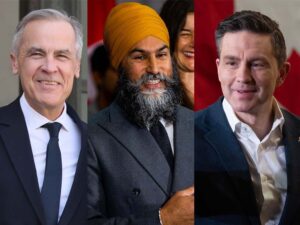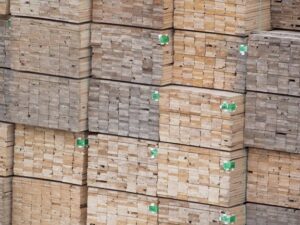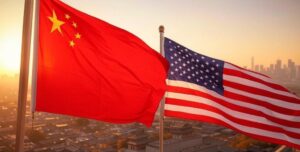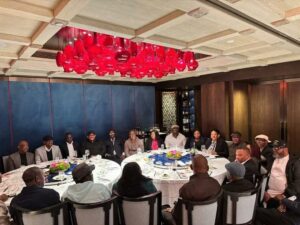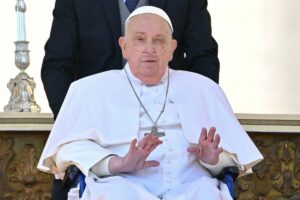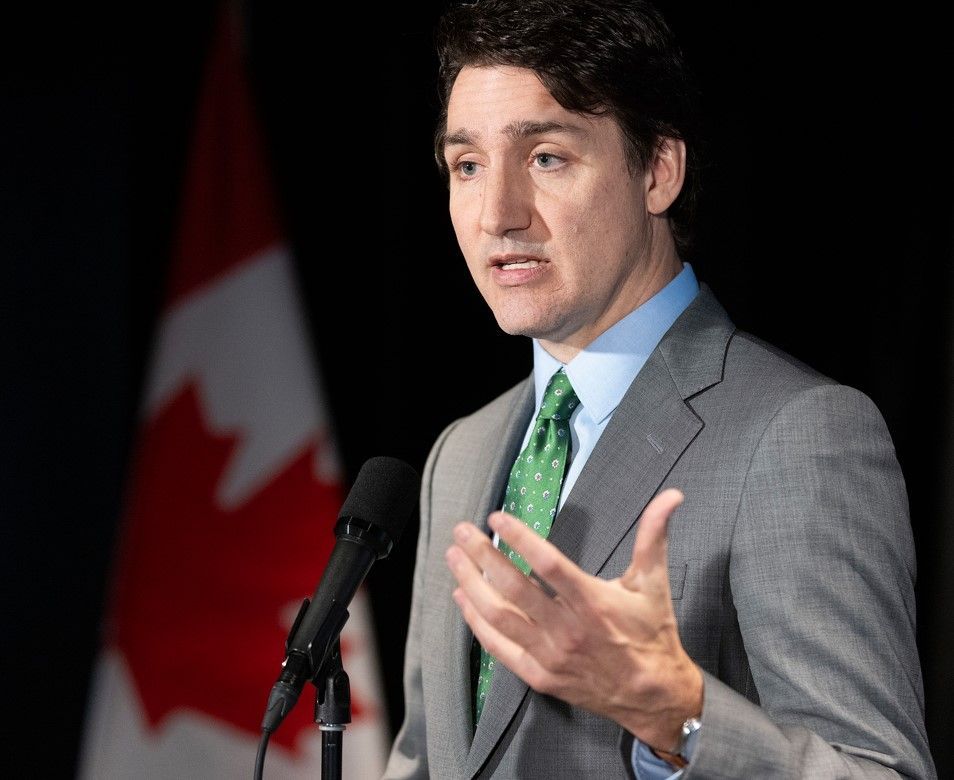
Canadian Prime Minister Justin Trudeau speaks to reporters following his meeting with Quebec Premier Francois Legault on Friday March 15, 2024.
In response to a listener’s question during an interview on the Radio-Canada show ICI Premiere on Friday, Trudeau said in French:
“I think about quitting every day. It’s a crazy job that I’m doing. Sacrifices on a personal level … If I didn’t doubt what I do almost every day, I wouldn’t be human.”
He describes the job of being Canada’s prime minister as “super tough” but also “super boring at times.”
But as for quitting? No way, Trudeau says.
“I couldn’t be the man I am and give up the fight at this point …The choice that Canadians will make, in a year in the (October 2025 federal election), will be so fundamental.”
Prime Minister of Canada Justin Trudeau arrives at the Unifor Local 444 hall in Windsor on Thursday, March 14, 2024.
Trudeau declaring, yet again, that while times are tough (for him, as well as Canadians) he’s not going to quit is by no means definitive.
He has to say that because the moment he says he isn’t going to run again he becomes a lame duck, with political, public and media attention instantly shifting away from him to who will replace him as party leader and PM.
So the question of whether he will definitively stay or go is unresolved.
What’s more revealing about his personality is the reasons he gives for wanting to lead the Liberals into the next election in 2025, where he says the choice Canadians face “will be so fundamental.”
Of course, that’s what he said about the last election in 2021, which he described going in as a “pivotal, consequential moment … maybe the most important since 1945 and certainly in our lifetimes” because “we will be taking decisions that will last not just for the coming months but for the coming decades.”
“Democracies are under attack around the world with extreme populism, with international attacks. To be there for this fight, that’s why I entered politics. Not to be popular, not for personal reasons. Because I want to serve and I know that I have something to offer.”
In addition, Trudeau said:
“Are we a country that will choose to move backwards in the fight against climate change? To move backwards in the rights of women and LGBT communities? Are we going to be a country that invests less in green growth?… Because that’s all that the Conservatives are proposing … It’s very easy in politics these days to attack a (carbon) tax, attack concrete measures and propose doing nothing.”
All of this brings to mind the musings attributed to French emperors Louis XIV – “L’Etat, c’est moi” (“I am the state”) – and Louis XV – “Après moi, le déluge” (“After me, the flood”) – in the 17th and 18th centuries.
Trudeau apparently thinks that without his compassionate, wise and courageous leadership, Canada will collapse into a tyranny loving, climate denying, human rights abrogating, backwater ruled by populist, carbon-tax cutting Conservatives.
Maybe that’s what he needs to think to sustain him at a time when his polls and popularity are underwater compared to Pierre Poilievre and the Conservatives.
To be fair, there is no doubt that the job of prime minister is a tough one and that Trudeau has sacrificed a lot – including his marriage – to retain it.
There is also no doubt he will leave a legacy in Canadian politics whenever he decides to retire.
Among his accomplishments are leadership through the pandemic in which Canada fared far better than the U.S. and many other developed countries, national childcare, dental and pharmacare plans at various stages of development, legalizing pot and, of course, his national carbon tax, or as he prefers to call it, “price on pollution” as part of an overall policy to fight climate change, which so far has cost Canadians more than $200 billion being spent on more than 100 government programs.
But Trudeau also has a record of massive deficit-financed public spending – both before, during and after the pandemic – and multiple ethical scandals that will also be part of his legacy.
Finally, the reality is that no prime minister is indispensable to the future of Canada.
Politicians come, go, and are eventually forgotten. The nation endures.


